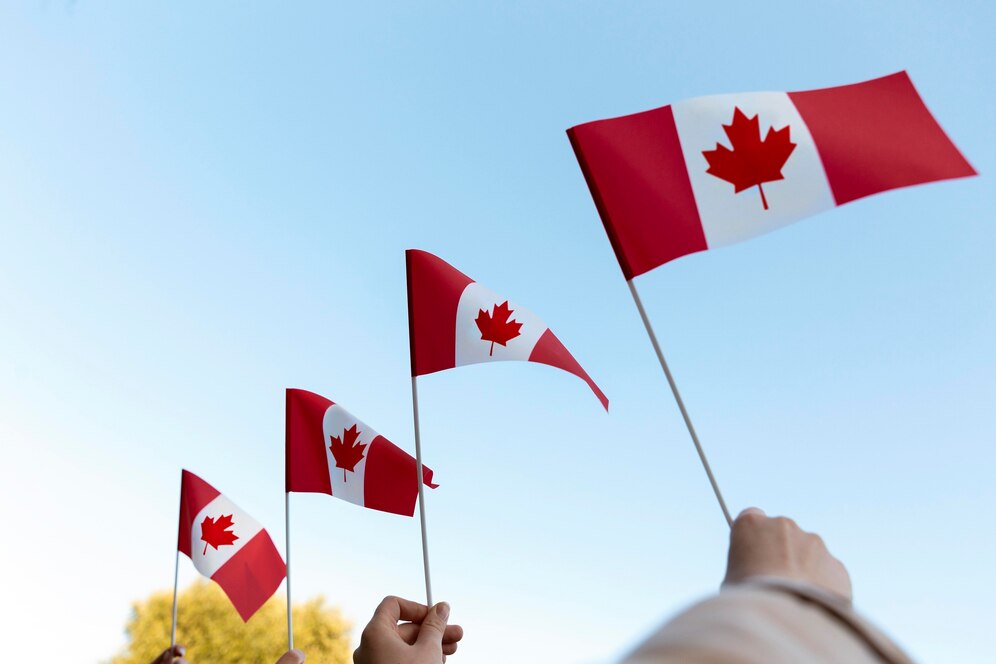According to a recent update shared by Business Standard, Canada has made significant changes to its Post-Graduation Work Permit (PGWP) program, impacting Indian students studying there. The tweak now allows even those completing one-year master’s programs to qualify for a three-year PGWP.
Previously, the duration of PGWPs varied based on the length of the program, often resulting in shorter permits for students with shorter programs. However, under the new policy, all master’s graduates are eligible for a three-year PGWP regardless of the program duration. This means Indian students completing master’s degree programs of at least 8 months in Canada can now apply for a three-year work permit upon graduation.
For instance, consider the case of Priya, an Indian student pursuing a 12-month master’s degree program in Canada. Previously, she would have been ineligible for a PGWP due to the program’s duration. However, with the recent policy change, Priya can now apply for a three-year PGWP, providing her with ample time to gain work experience and explore opportunities for permanent residency in Canada, as explained by Aditya Chopra, Managing Partner at Victoriam Legalis – Advocates & Solicitors.
However, effective September 1, 2024, graduates of diploma or certificate programs will no longer be eligible for a PGWP. Additionally, international students enrolled in programs covered by curriculum licensing agreements will no longer qualify for a PGWP upon graduation. These agreements involve students attending private colleges licensed to deliver the curriculum of associated public colleges, a practice that Immigration Refugees Citizenship Canada (IRCC) considers a loophole for PGWP eligibility.
Alay Razvi, Partner at Accord Juris LLP, Hyderabad, highlights some of the significant changes, including a new cap on work permits issued to spouses of international students, requirements for attestation letters from provinces or territories, an increase in the cost-of-living financial requirement, and a restriction on issuing work permits to spouses of international undergraduate students, limiting it to spouses of those pursuing master’s or Ph.D. degrees.

Navigating Canada’s Evolving Post-Graduation Work Permit Landscape: Key Updates and Implications
According to the latest information available on Canada.ca, significant updates have been made to the post-graduation work permit (PGWP) program, impacting international students, including those from India, who have completed their studies in Canada. Here’s an in-depth look at these changes:
Eligibility Criteria
- Graduating from a designated learning institution (DLI) in Canada is a prerequisite for eligibility for the PGWP. However, it’s crucial to note that not all programs at DLIs make students automatically eligible for the PGWP. Therefore, prospective applicants must verify the status of their institution and program on the DLI list to ensure eligibility.
Changes in Policy
- One of the most significant changes in policy affects the recognition of online studies conducted outside Canada. Previously, the time spent studying online at a PGWP-eligible DLI from outside Canada between March 2020 and August 31, 2022, counted towards the PGWP duration.
However, this policy underwent revisions effective September 1, 2022.
Find out if these changes affect you and how.
Any time spent studying outside of Canada after December 31, 2023, no longer contributes to the PGWP duration.
Study Requirements
- Until August 31, 2024, students are required to complete at least 50% of their program either online or in class in Canada to be eligible for the PGWP.
- Commencing from September 1, 2024, a significant alteration mandates that at least 50% of the program must be completed in class in Canada.
Duration of PGWP
- A notable change effective February 15, 2024, grants students graduating from master’s degree programs of less than two years (with a minimum of 8 months) eligibility for a three-year PGWP. This change is particularly beneficial for students pursuing shorter master’s programs.
- The duration of the PGWP is determined by various factors, including the level and duration of the study program and the expiry date of the applicant’s passport. For instance, master’s degree holders from programs lasting at least 8 months are now eligible for a three-year PGWP, irrespective of the program’s duration.
Multiple Program Completion
- Individuals who have completed multiple programs may be able to aggregate the duration of each program to determine their PGWP validity. However, each program must meet specific criteria, including being PGWP eligible and at least 8 months in length.
Passport Expiry Considerations
- If an applicant’s passport expires before the PGWP validity period, adjustments will be made accordingly, ensuring compliance with immigration regulations.
These comprehensive updates underscore the importance of staying informed about evolving immigration policies, particularly for international students aspiring to work in Canada post-graduation. It’s advisable for prospective applicants to thoroughly understand the eligibility criteria and any recent policy amendments to optimize their chances of securing a PGWP and exploring work opportunities in Canada.
For the most up-to-date information and further details, it is recommended to visit the official Canada.ca website. There, you can find the latest updates, comprehensive guidelines, and official announcements regarding the post-graduation work permit (PGWP) program, ensuring that you have the most accurate and reliable information for your specific circumstances.



